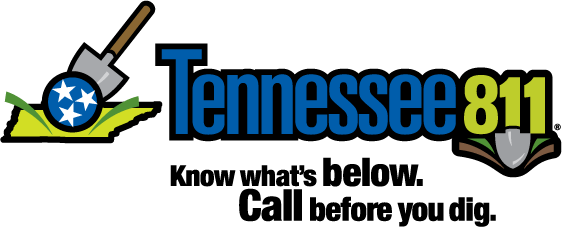Some numbers you know by heart and 811 should be one of them. National 811 Day is August 11, 2014 (8/11) and reminds the public that calling before you dig prevents damage to underground utilities such as gas and electric lines and keeps residents safe.
When residents call 811, underground utility lines will be located free of charge. Tennessee law requires that individuals give notice to the 811 center three business days before digging begins. This service is free, and all residents who intend to excavate or have contractors excavate are required to call.
Damage to utilities can occur during installation of a fence or mailbox, building a deck or additional room, and even gardening. “We want residents of Shelby County to realize that underground utility lines can be disturbed or damaged by common home improvement projects,” said Jerry Collins Jr, MLGW President and CEO. Digging without calling can result in damage to underground utility lines, harm to residents, disruption of neighborhood service, and fines and repair costs for those responsible.
If residents hit or damage a utility line in the process of excavation, they should immediately stop digging and call MLGW. Remember that natural gas smells like rotten eggs. If residents smell this odor, they should evacuate the area right away and call 911 and MLGW’s emergency line (528-4465). MLGW wants to remind residents that the best way to avoid these dangerous situations is to always call 811 before you dig. More information on calling 811 and natural gas safety can be found on MLGW’s website at mlgw.com.

-
American Gas Association - The American Gas Association, founded in 1918, represents more than 200 local energy companies that deliver clean natural gas throughout the United States.
- Common Ground Alliance - The Common Ground Alliance (CGA) is a member-driven association dedicated to ensuring public safety, environmental protection, and the integrity of services by promoting effective damage prevention practices.
MLGW is the largest three-service public power utility in the nation, serving more than 420,000 customers in Memphis and Shelby County.


